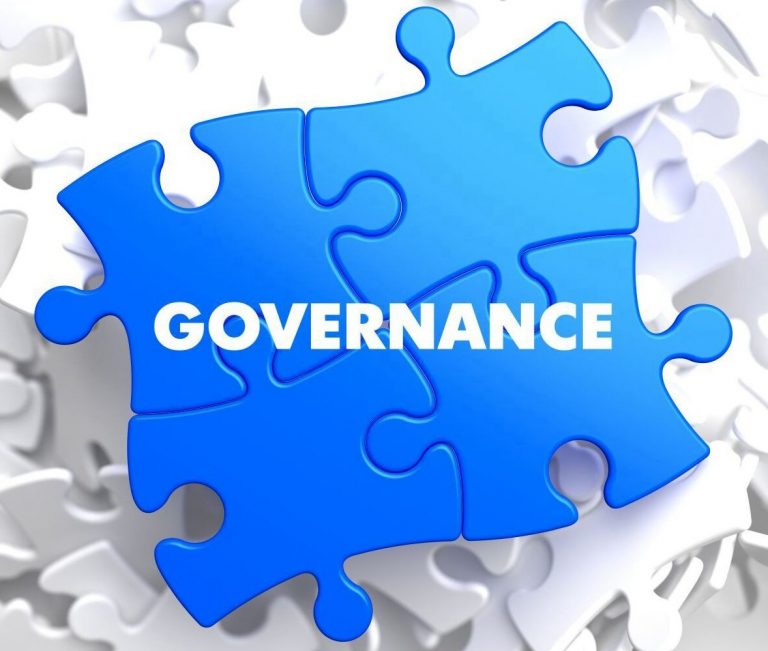How to ensure Effective Governance? follow this steps

Introduction
Effective Governance: There are five elements that we consider are essential for governance to be effective. Although the elements are important in their own right, those involved in public administration need to consider how they apply to the particular context of the organisation or project that they are involved in. This applies to members of governing bodies and also to chief executives and senior managers who report to, and work with, governing bodies. The elements apply to organisational (or corporate) governance and programme or project governance.
What is Governance?
This section is not intended to be a definition of governance or how it should be conducted, but instead a description of what is meant by the elements in this part of the survey. Sector/Organisational Governance Policy Governance structures need to be set up in advance of setting up an organisation, or more likely a group of groups, such as a team, department, board, group, section, or department. Having a clear governance policy will help define what the governing body should do, how they are going to do it and who is responsible for what. Governance policies should be explained in a way that enables members of the organisation to understand how their organisation will be governed, who is responsible for doing what, how they should work together, and how decisions will be made.
Unpublished form
Principles of Governance
The essential elements of the model we have developed are “operational”, “communications”, “legislation”, “financial and contractual arrangements”, “staff”, “involvement” and “accountability”. These provide a framework of principles that, when applied and integrated into an organisation, can lead to effective and efficient governance. We believe that good governance is the cornerstone for accountability and effectiveness. Good governance has to be about the people involved in the organization or project, and about what they and the organisation are trying to achieve. It requires clear accountability and responsibility of everyone involved. This should be about achieving common goals and enhancing performance.
- Read about Effective Audit techniques
Principle 1: Accountability
The organisation must accept ultimate responsibility for the delivery of its public service to the public. The individual cannot escape accountability for the provision of public service. Accountability depends upon the truthfulness of the official statement of information provided, the level of information provided and its quality, and the accountability to which a public service unit or organisation must be accountable to the public.
Principle 2: Transparency
Governance requires complete transparency and honesty from those who are responsible. Effectiveness can only be achieved by taking full responsibility for the actions of the organisation or project and by setting clear goals and values and being open and honest about what is and is not working. Without openness, the organisation or project will not be open to feedback, criticism or failure and will not learn from mistakes or successes. Transparency is an important element of governance. People who are trusted with the organisations or projects that they are responsible for must be open about what they do and why they do it. They must share their plans, results plan to change, and need to explain how they respond to change in order to secure the public’s confidence and their support.

Principle 3: Accessibility
Accessibility to knowledge Both the administrative and functional part of any organisation requires the ability to obtain, apply, assess and share relevant knowledge. Effective access to knowledge, on an ongoing basis, requires capacity. This may mean developing capacity in the form of skills and knowledge and/or having the resources to do so. In many organizations, there is a sense that capacity is the domain of senior managers. But it can be taken further, by removing the barrier that exists between those responsible for decisions and those responsible for the implementation of decisions, so that they can be engaged in planning, decision-making and reporting about those decisions.
- Read about The role of internal financial auditing
Principle 4: Legality
The principle of legality requires that every decision that has been taken must be lawful and above board. There must be no indication that anyone or anything has been taken out of the law or altered to suit the particular needs of any person, group, party, or institution. Also, the principle requires that any law that has been broken must be specified. It would not be possible to reach a judgment on the issue of legality if it is not known how the facts are to be explained. Principle 5Accountability A decision-making body or authority is responsible for the decisions that it makes and for the consequences of those decisions. The right to have a say in decisions is key to accountability.
Principle 5: Fairness
If, as the governor of the Bank of England, you judge that the social value of the programme or project to which you are contributing is more important than any short-term benefits it might bring to your bank, then you would consider the institution’s overall risk exposure. This could take into account the reduced social value of an investment decision. Principle 6Ability People need the ability to succeed and be rewarded for it. Whilst differences of background and experience can be an advantage, someone cannot get a job because they are similar to others who do not have the same skills.
Conclusion (effective governance)
These five elements can help set up good governance. The five elements can also help to get things wrong if they are not understood or applied effectively. It is all too easy to misunderstand these elements, even more so in the dynamic world of government where organisations change rapidly, sometimes without good planning. The questions asked in this article highlight how these elements are often taken for granted, whether that is in small, private or public organisations. There is an urgent need for agencies to consider how they apply these elements to their work and develop a better understanding of what makes for effective, and appropriate, governance.
